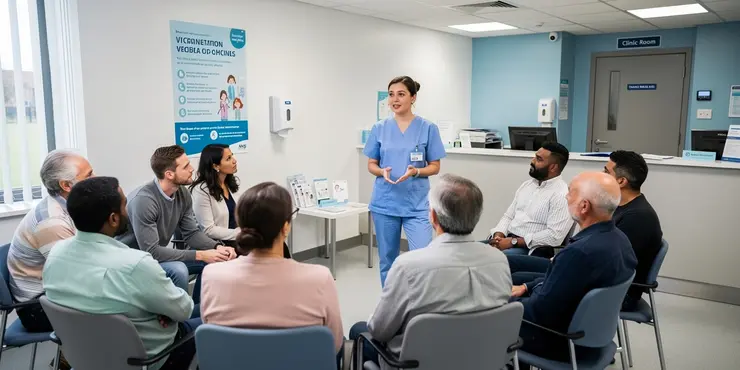
Find Help
More Items From Ergsy search
-
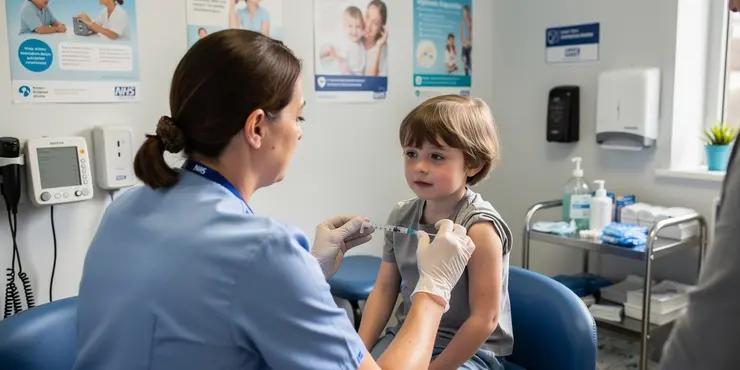
Are there vaccines for meningitis?
Relevance: 100%
-
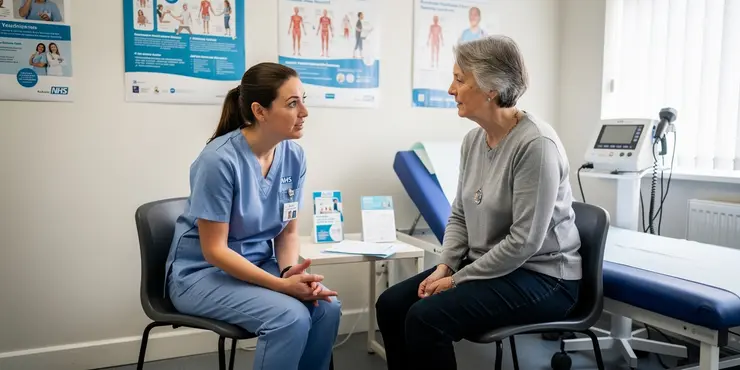
Are vaccines safe?
Relevance: 100%
-
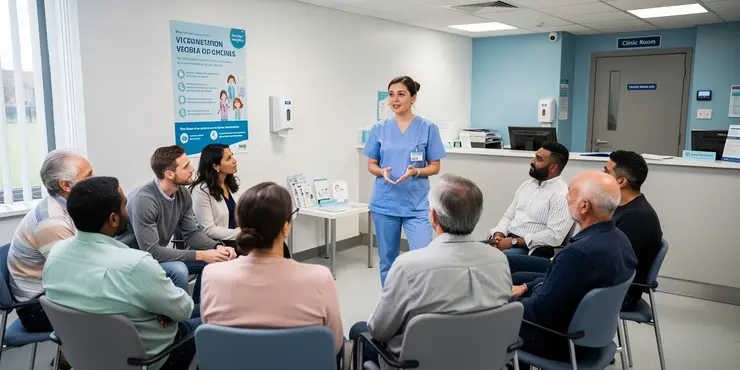
What is a vaccine?
Relevance: 100%
-
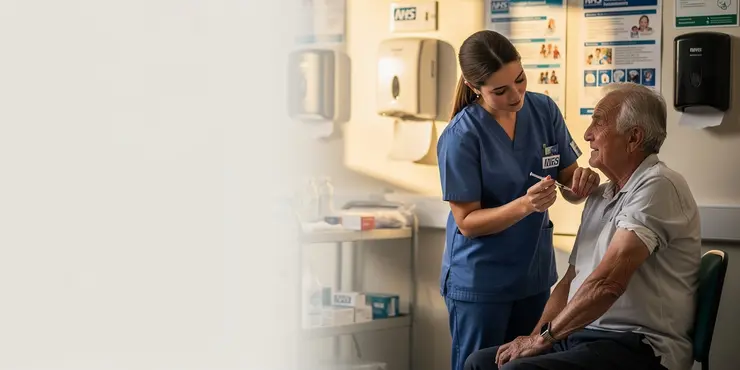
Is there a vaccine for H3N2?
Relevance: 99%
-
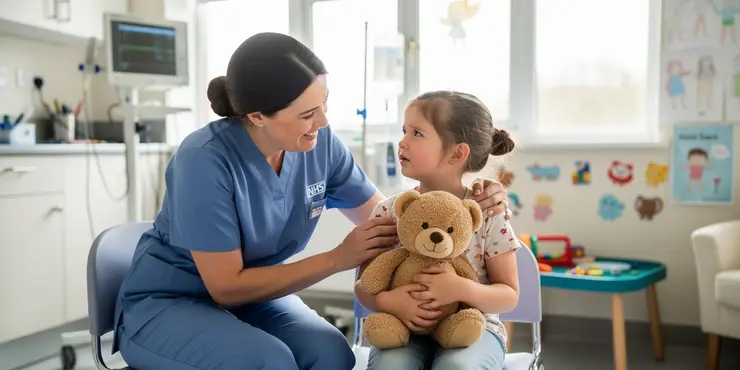
Is there a vaccine for norovirus?
Relevance: 99%
-
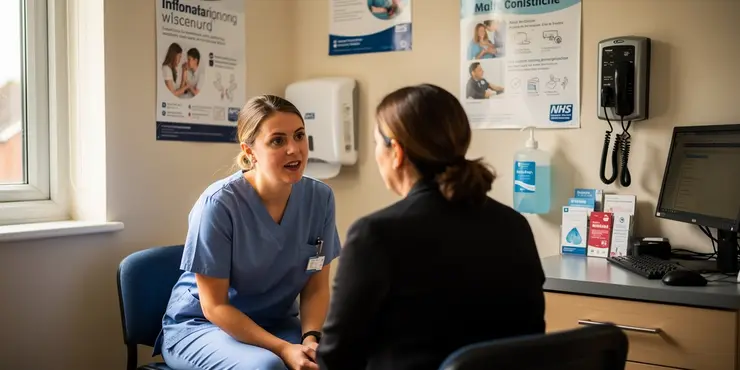
Is there a vaccine for gonorrhoea?
Relevance: 99%
-
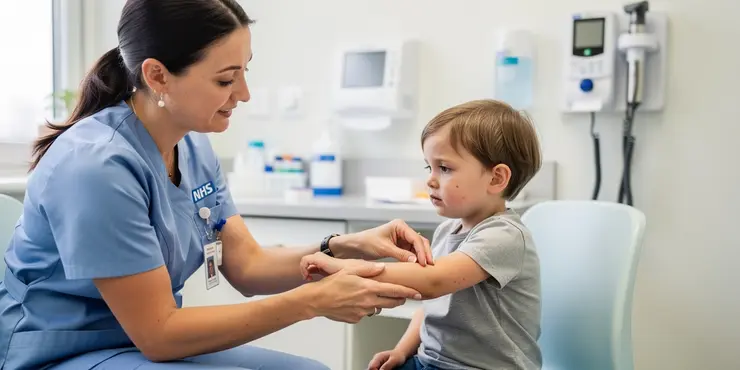
Is there a vaccine for impetigo?
Relevance: 97%
-
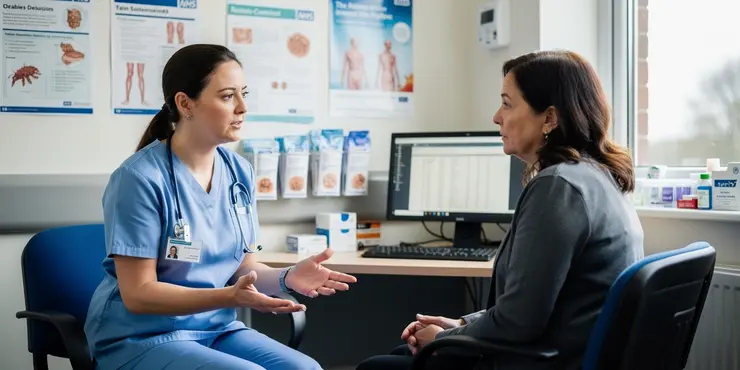
Is there a vaccine for scabies?
Relevance: 96%
-
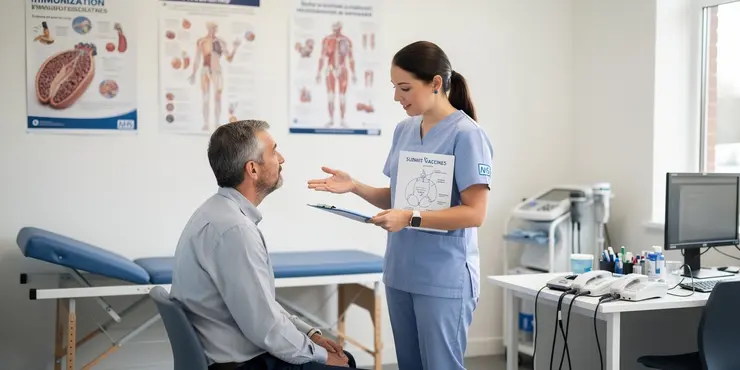
What is a subunit vaccine?
Relevance: 95%
-
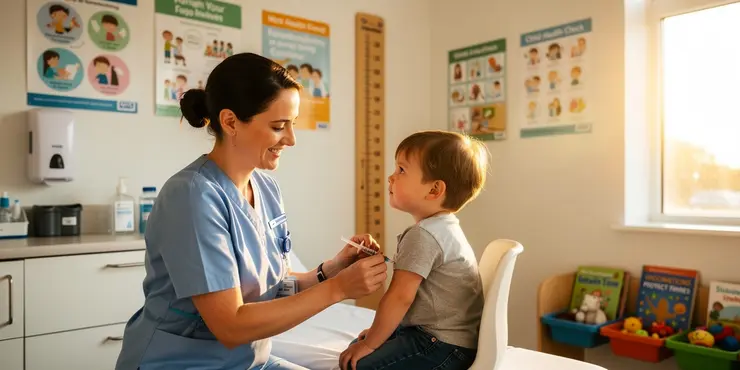
What is a live-attenuated vaccine?
Relevance: 95%
-
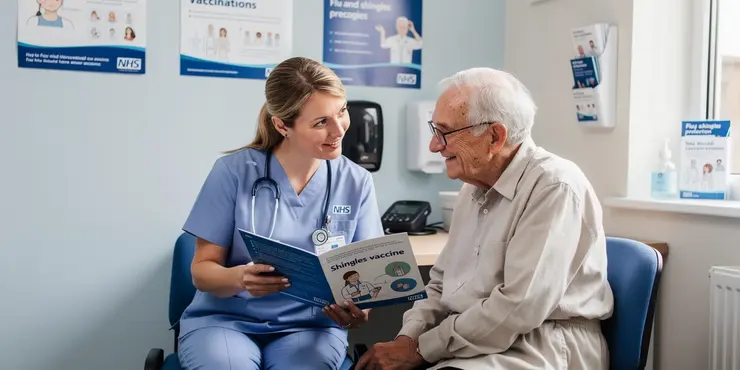
Is the shingles vaccine safe?
Relevance: 95%
-
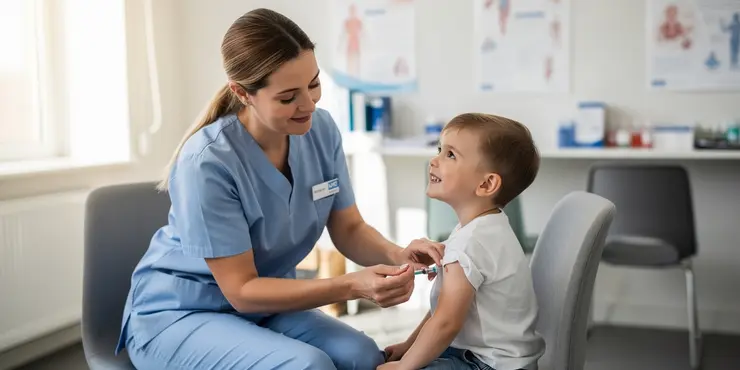
Children's Vaccination Schedule
Relevance: 95%
-
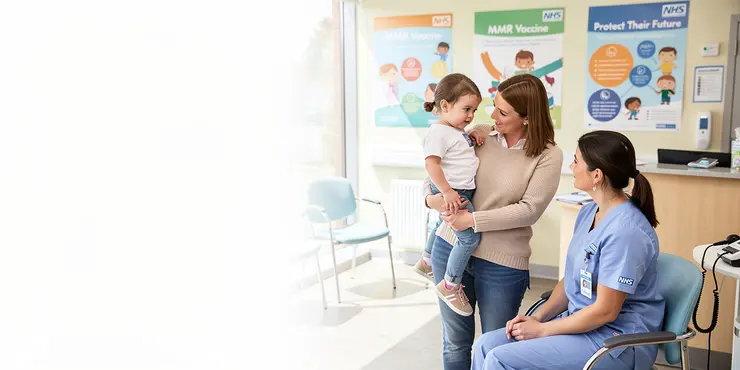
What is the MMR vaccine?
Relevance: 95%
-
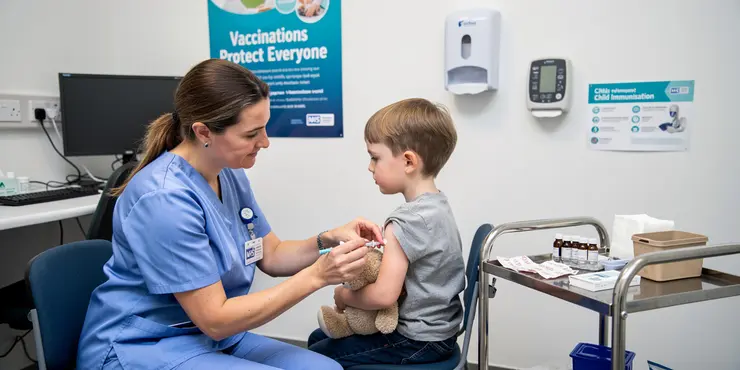
Why are vaccines important?
Relevance: 95%
-
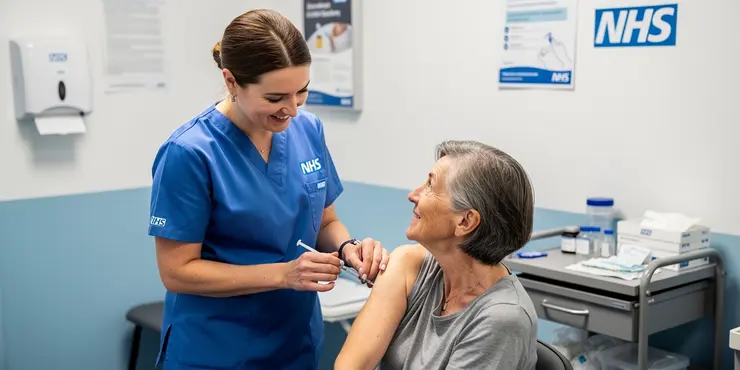
Is there a vaccine for the Zika virus?
Relevance: 94%
-
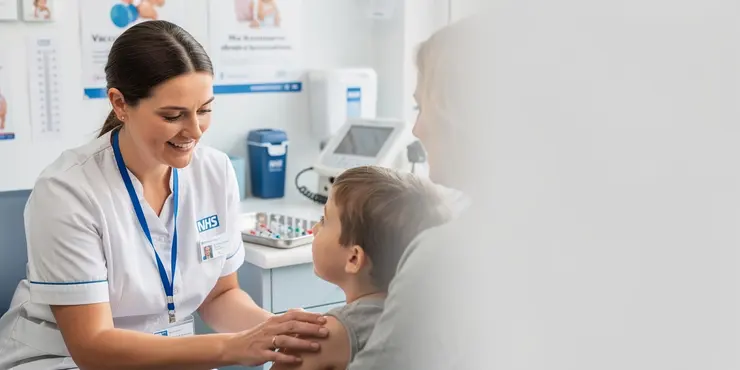
Are vaccines linked to autism?
Relevance: 94%
-
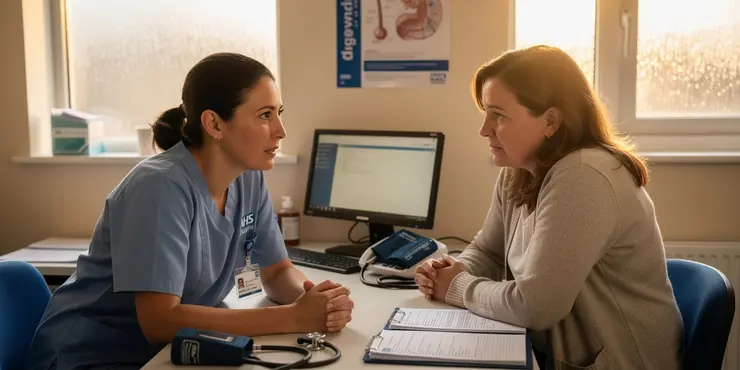
Is there a vaccine for Lyme disease?
Relevance: 94%
-
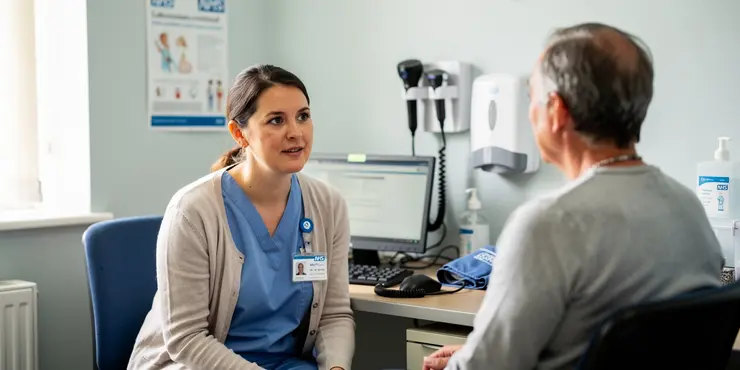
Is there a vaccine for Marburg virus?
Relevance: 94%
-
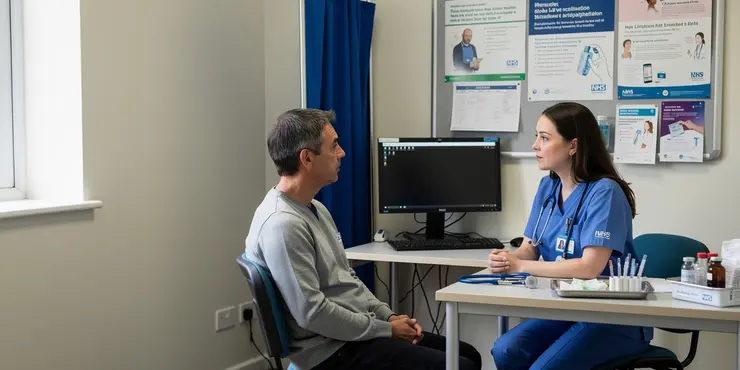
Are there vaccines for the bubonic plague?
Relevance: 94%
-
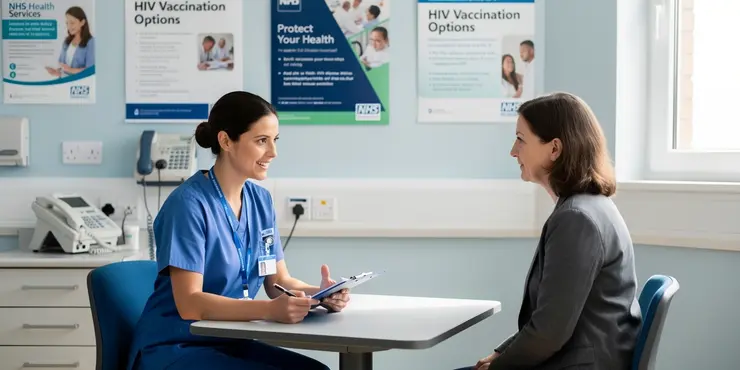
Are there vaccines available for HIV?
Relevance: 94%
-
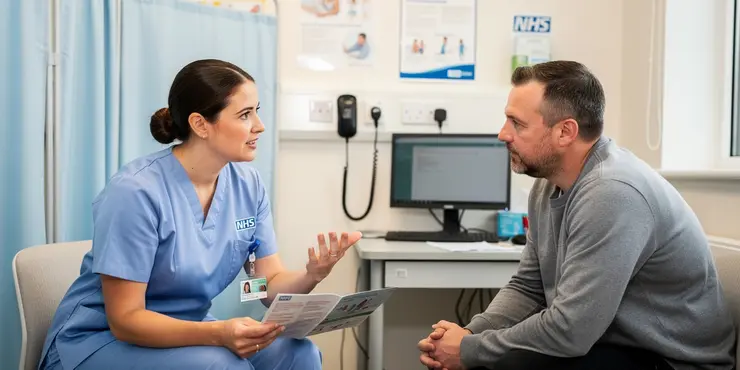
What are the different types of vaccines?
Relevance: 91%
-
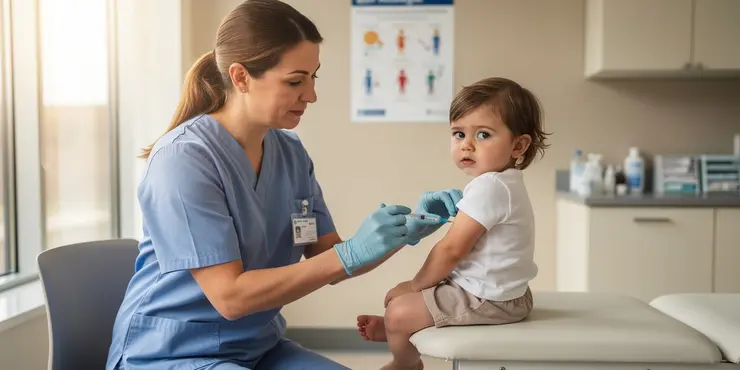
Can everyone receive vaccines?
Relevance: 91%
-
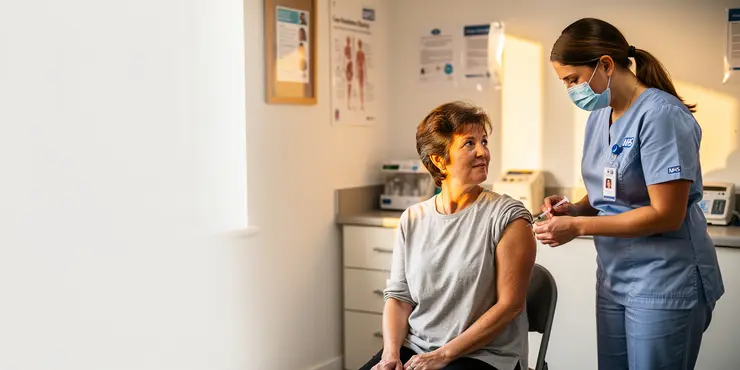
How effective is the flu vaccine?
Relevance: 91%
-
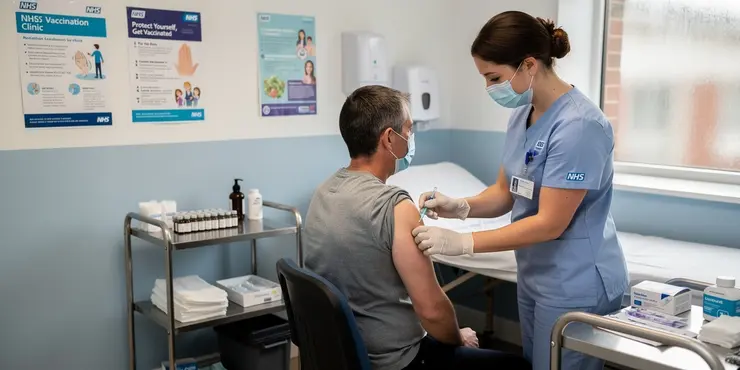
How do vaccines work?
Relevance: 91%
-
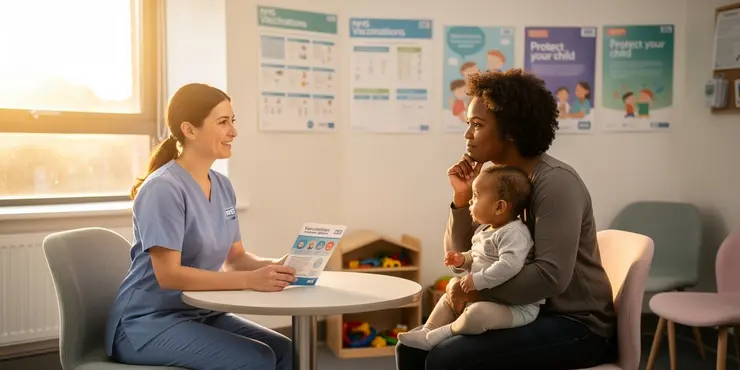
Should I get the chickenpox vaccine?
Relevance: 91%
-
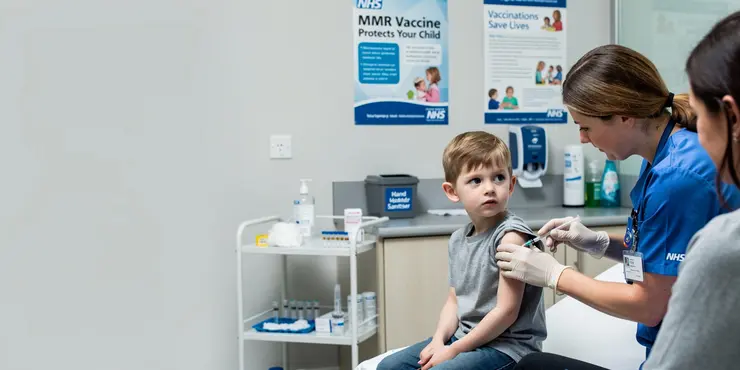
How effective is the MMR vaccine?
Relevance: 90%
-
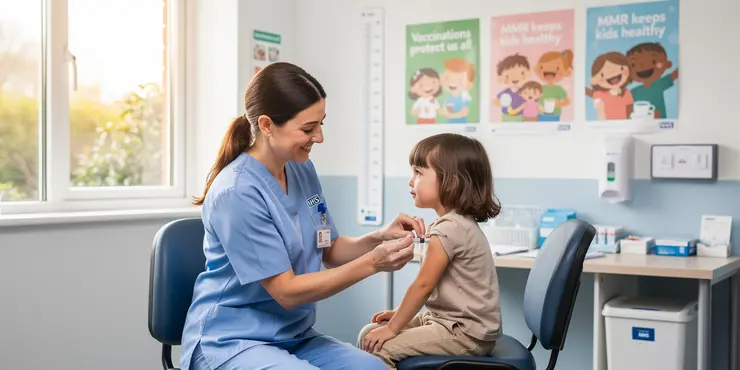
How effective is the MMR vaccine?
Relevance: 90%
-
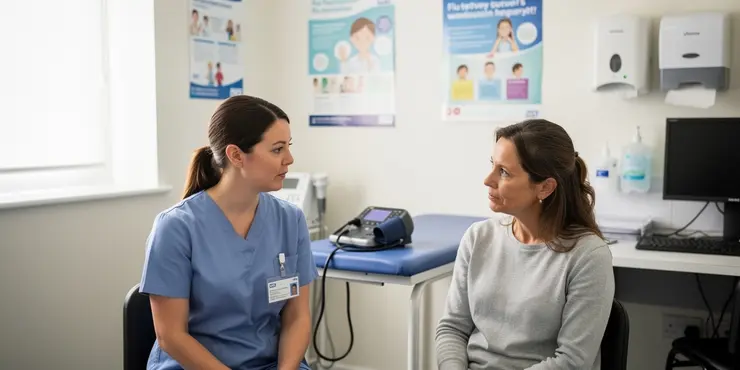
What if I'm not eligible for a free flu vaccine, can I still get vaccinated?
Relevance: 90%
-
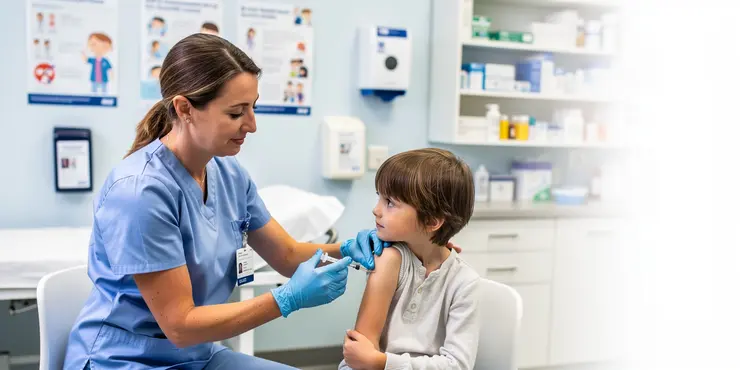
What are vaccines and how do they work?
Relevance: 87%
-
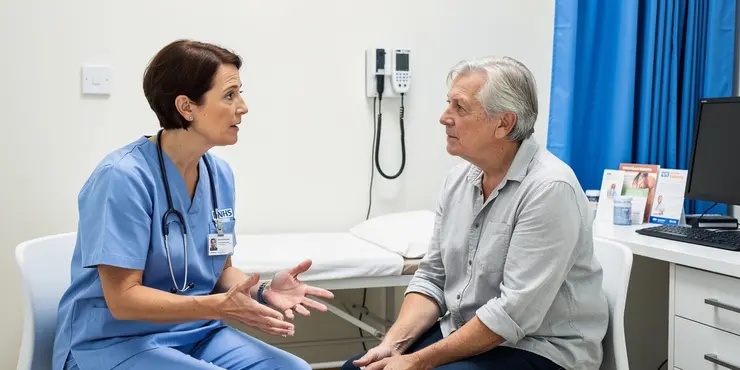
Can the shingles vaccine cause chickenpox?
Relevance: 87%
-
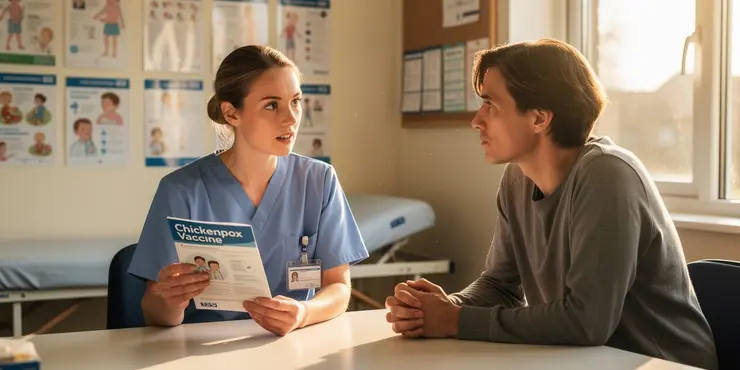
Who should get the chickenpox vaccine?
Relevance: 87%
-
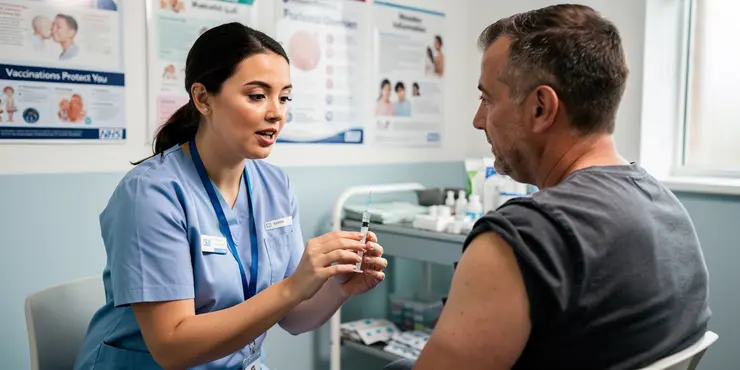
Can the measles vaccine be given to adults?
Relevance: 87%
-

Current Flu Vaccination Recommendations and Availability
Relevance: 87%
-
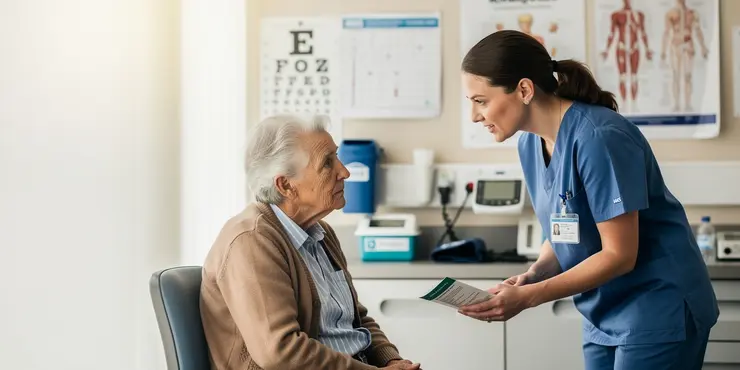
Can the shingles vaccine cause chickenpox?
Relevance: 87%
-
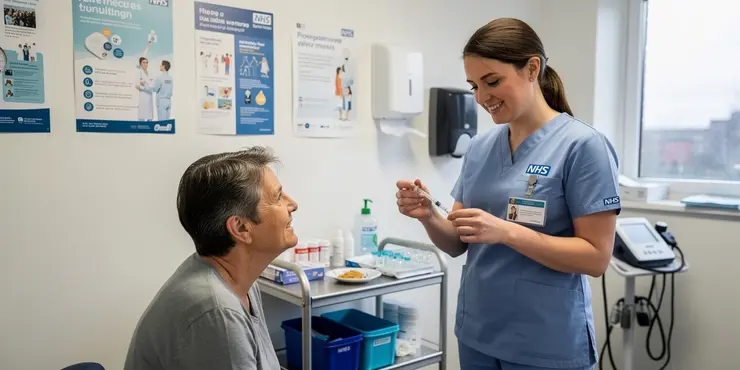
Is the flu vaccine free for everyone in the UK?
Relevance: 87%
-
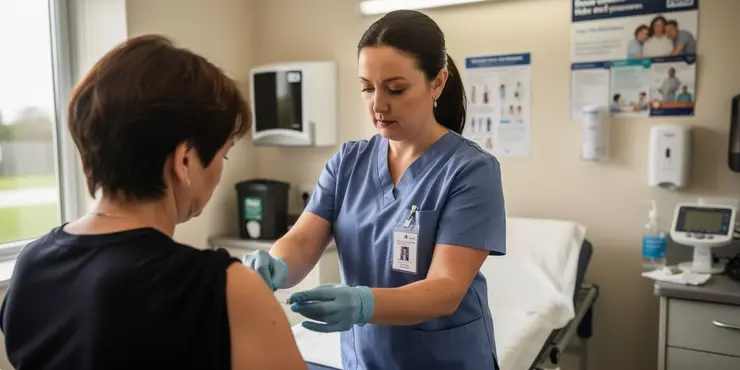
Is there a different recommendation for the MenACWY and MenB vaccines?
Relevance: 87%
-
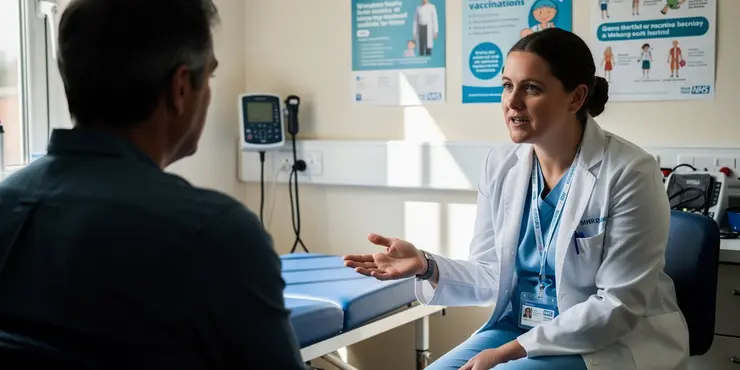
Can adults receive the MMR vaccine?
Relevance: 87%
-
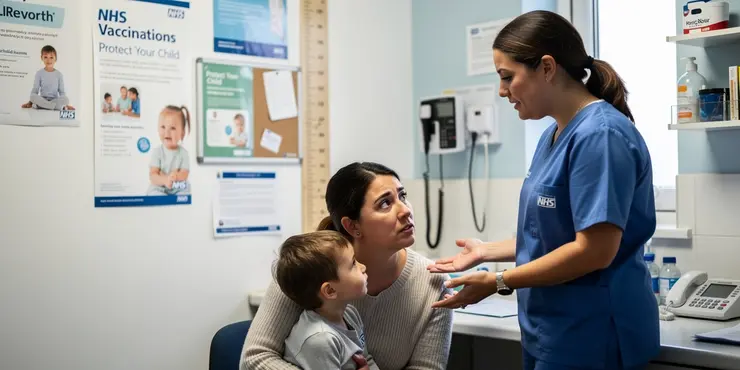
Why are vaccination rates declining in the UK?
Relevance: 87%
-

Who should get the HPV vaccine?
Relevance: 87%
-
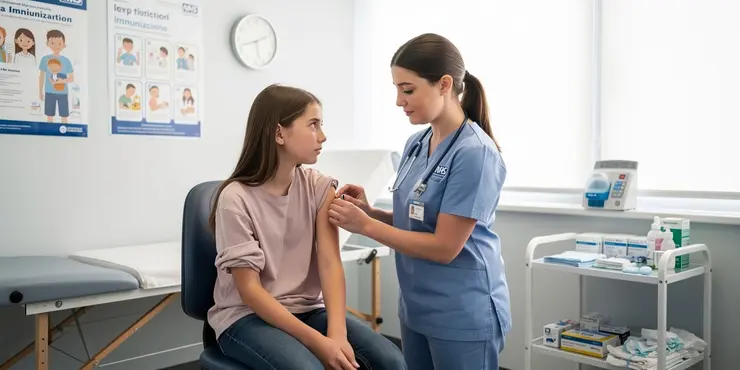
What is the year 8 HPV vaccine? | NHS
Relevance: 87%
What is a Vaccine?
Vaccines are biological preparations that provide active acquired immunity to specific infectious diseases. They contain agents that resemble disease-causing microorganisms, often made from weakened or killed forms of the microbe, its toxins, or one of its surface proteins. These agents stimulate the body's immune system to recognize them as threats, destroy them, and remember them, so the immune system can more easily recognize and destroy any future encounters with the microorganism.
How Do Vaccines Work?
When a vaccine is administered, it prompts the immune system to respond as if it were under attack, without causing the disease itself. This response involves the production of antibodies, which are proteins that can specifically neutralize pathogens. The immune system also produces memory cells, which remain in the body and can deliver a quicker and more robust response if the body encounters the pathogen again in the future. This process effectively equips the immune system to fight off the real disease-causing organism if exposed later.
Types of Vaccines
There are several different types of vaccines, each tailored to combat specific kinds of pathogens. These include live-attenuated vaccines, which use a weakened form of the germ; inactivated vaccines, which contain the killed versions of the germ; subunit, recombinant, polysaccharide, and conjugate vaccines, which use specific pieces of the germ; and mRNA vaccines, which use genetically engineered RNA to generate a protein initiating an immune response. Each type has specific benefits depending on the pathogen and the required immune response.
The Importance of Vaccination
Vaccination is one of the most effective public health interventions for preventing infectious diseases. It significantly reduces the spread of diseases, fosters herd immunity, and has helped to eradicate or control many once-deadly diseases, such as smallpox and polio. Herd immunity occurs when a significant portion of a population becomes immune to a disease, limiting its spread and protecting those who are not immune. Vaccines are crucial for protecting vulnerable populations, including young children, the elderly, and individuals with compromised immune systems, who may not be able to receive certain vaccines themselves.
Safety and Development
Vaccines undergo rigorous testing in multiple stages throughout their development to ensure safety and efficacy. This includes preclinical testing, clinical trials in humans, and continuous monitoring after approval. Regulatory agencies, such as the UK's Medicines and Healthcare products Regulatory Agency (MHRA), evaluate the results before approving a vaccine. Once approved, vaccines are continually monitored for safety and effectiveness, making them a trustworthy tool in disease prevention.
Conclusion
Vaccines are vital in controlling and preventing infectious diseases. They not only protect individuals who receive them but also contribute to the greater good by helping to reduce transmission through herd immunity. Through continuous research and development, vaccination remains a key component in advancing global public health and ensuring healthier future generations.
What is a Vaccine?
A vaccine is something that helps your body fight off certain illnesses. It is like a special medicine made from tiny parts of germs that can make you sick. But don't worry, these germs are dead or very weak. The vaccine helps your body learn to fight the germs so you don’t get sick from them in the future.
How Do Vaccines Work?
When you get a vaccine, your body gets ready to fight. It doesn’t make you sick, but it teaches your body to be strong against the germ. Your body makes special fighters called antibodies that go after the germs. It also remembers the germ so that if you meet it again, your body can fight it faster and better. This keeps you safe from getting really sick later on.
Types of Vaccines
There are different kinds of vaccines for different germs. Some use weak germs, some use dead germs, and others use parts of the germ. There are also new vaccines that use a special instruction to make your body fight the germ. Each kind helps your body in special ways to keep you healthy.
The Importance of Vaccination
Getting vaccinated is very important because it helps stop diseases from spreading. It protects people so they don’t get very sick. Vaccines can even stop some diseases from existing at all, like smallpox. When most people get vaccinated, it keeps everyone safer, especially those who can’t get vaccines, like some small children and older people.
Safety and Development
Before a vaccine is ready to use, it goes through a lot of tests to make sure it is safe and works well. Scientists check it many times. Even after people start using it, they keep checking to make sure it is still safe. This means you can trust vaccines to help keep you healthy.
Conclusion
Vaccines are very important for keeping us healthy and stopping the spread of diseases. They protect the people who get them and help keep everyone safer. With more research and new vaccines, we can help make the world healthier for everyone.
Frequently Asked Questions
What is a vaccine?
A vaccine is a biological preparation that provides active acquired immunity to a particular infectious disease.
How do vaccines work?
Vaccines work by stimulating the immune system to recognize and fight pathogens like viruses or bacteria without causing the disease.
What are vaccines made of?
Vaccines can be made from weakened or killed forms of the microbe, its toxins, or one of its surface proteins.
Why are vaccines important?
Vaccines are crucial for preventing outbreaks of infectious diseases and have saved millions of lives by eradicating or controlling diseases.
What diseases can vaccines prevent?
Vaccines can prevent diseases such as measles, mumps, rubella, polio, influenza, hepatitis B, and more.
Are vaccines safe?
Vaccines are thoroughly tested for safety and efficacy before being approved and continually monitored after approval.
Can vaccines cause the disease they are meant to prevent?
Vaccines usually do not cause the disease they protect against. Live vaccines are weakened so they don't cause disease in healthy people.
How are vaccines administered?
Vaccines can be administered through injections, orally, or via a nasal spray, depending on the vaccine.
Do vaccines have side effects?
Vaccines can have side effects, which are usually mild, such as a sore arm or low-grade fever. Serious side effects are rare.
Why do some vaccines require multiple doses?
Multiple doses ensure long-lasting immunity and provide a booster effect, enhancing the immune response.
How are vaccines developed?
Vaccine development involves research, testing in cells and animals, and three phases of clinical trials in humans before approval.
What is herd immunity?
Herd immunity occurs when a large portion of a community becomes immune to a disease, making the spread of the disease unlikely.
Can everyone receive vaccines?
Most people can receive vaccines, but some vaccines are not recommended for people with certain medical conditions or allergies.
Why do vaccines need to be stored properly?
Proper storage and handling are essential to maintain the efficacy and safety of vaccines.
What is a live attenuated vaccine?
A live attenuated vaccine contains a weakened form of the germ that causes the disease, which helps build immunity without causing the disease.
What is an inactivated vaccine?
An inactivated vaccine contains a virus or bacterium that has been killed, which stimulates an immune response without causing illness.
Why do we still need vaccines if a disease is rare?
Vaccines are needed even for rare diseases to prevent their return and potential outbreaks.
How are vaccines monitored for safety?
Vaccines are monitored through national regulatory agencies and systems like the Vaccine Adverse Event Reporting System (VAERS).
What is a booster shot?
A booster shot is an additional dose of a vaccine given periodically to boost the immune system and maintain immunity.
What is the difference between a vaccine and a treatment?
A vaccine prevents disease by triggering the immune system, while a treatment is used to manage or cure an illness once it has occurred.
What is a vaccine?
A vaccine is a medicine that helps your body stay healthy. It stops you from getting sick from certain germs.
Vaccines teach your body how to fight germs.
Here is how you can understand vaccines better:
- Watch videos about vaccines made for kids.
- Ask an adult to explain what vaccines do.
- Look at pictures that show how vaccines work.
A vaccine is a kind of medicine. It helps your body fight germs so you don't get sick from a certain disease.
How do vaccines work?
Vaccines help keep us healthy.
They teach our bodies to fight germs.
When we get a vaccine, it helps protect us from getting sick later.
Try using pictures or videos to learn more about vaccines.
You can also ask a grown-up to explain it to you.
Vaccines help your body learn how to fight germs like viruses or bacteria. They do this without making you sick.
What are vaccines made of?
Vaccines help keep you from getting sick. They are made of tiny parts of germs. These parts are safe and can't make you sick. They teach your body how to fight the real germs.
If you are finding it hard to understand, you can:
- Ask someone to explain it to you.
- Use pictures or videos to learn more.
- Look for books or websites made for kids.
Vaccines can be made from weak or dead germs. They can also be made from parts of the germ, like its poisons or outer bits.
Why Do We Need Vaccines?
Vaccines help keep us safe from getting really sick.
They stop germs from making us ill.
Getting vaccinated helps protect everyone around us too!
To understand vaccines better, it can be good to:
- Watch simple videos about how vaccines work.
- Talk to a doctor or nurse who can explain things.
- Look at pictures or books made for kids.
Vaccines are very important. They help stop the spread of diseases and have saved many lives by getting rid of or controlling these diseases.
What sicknesses can vaccines stop?
Vaccines can stop many sicknesses. Here are some sicknesses vaccines can help with: - Measles - Mumps - Rubella - Polio - Chickenpox - Flu Vaccines are very helpful. They keep you healthy. You can talk to your doctor or nurse for more help. They can tell you about vaccines. It is good to stay healthy!Shots can stop people from getting sick with diseases like measles, mumps, rubella, polio, the flu, and hepatitis B.
Are vaccines safe?
Vaccines help keep us healthy. They stop us from getting really sick.
Doctors check vaccines to make sure they are safe. This means they do a lot of tests.
If you feel worried, you can talk to a doctor or nurse.
Tools like pictures or videos can help you understand more about vaccines.
Vaccines are tested very carefully to make sure they are safe and that they work well. Even after they are allowed to be used, people keep checking them to make sure they stay safe.
Can vaccines make you sick with the disease they stop?
Vaccines help keep us healthy by stopping diseases. Sometimes people worry that vaccines might make them sick with the disease they're meant to stop. But vaccines are made to be safe.
Here are some simple facts about vaccines:
- Vaccines teach your body to fight germs.
- Most vaccines do not use live germs, so they cannot cause the disease.
- Some might cause mild symptoms, like a sore arm or a mild fever. This means the vaccine is working.
If you have questions, you can ask a doctor or a nurse.
Vaccines usually do not make you sick with the disease they are meant to stop. Live vaccines are made weaker so they do not make healthy people sick.
How do people get vaccines?
Vaccines can be given in different ways. They might be given with a needle, as a liquid to drink, or as a spray in the nose. It depends on which vaccine you need.
Do vaccines have side effects?
Yes, vaccines can have side effects. These are usually mild. It helps the body learn to fight germs. Common side effects are:
- Sore arm
- Fever
- Tiredness
These side effects go away in a few days. Tell an adult if you feel unwell. You can use pictures or videos to understand more about vaccines. Talking to a doctor can also help.
When you get a vaccine, you might feel some side effects. Don't worry, they are usually not bad. You might get a sore arm or a little fever. Bad side effects do not happen a lot.
If you find reading hard, try using pictures to help explain. Also, asking someone to read with you can make it easier.
Why do some vaccines need more than one shot?
Some vaccines need more than one shot to work well. Here is why:
- Build Strong Protection: The first shot starts to protect you. But more shots make the protection strong.
- Lasting Protection: More shots help the protection last a long time.
- Remind Your Body: Extra shots help your body remember how to fight the germs.
If you need help with vaccines, you can:
- Use pictures or videos to learn about vaccines.
- Ask someone to explain it to you in simple words.
- Talk to a doctor or nurse if you have questions.
Getting more than one dose helps your body stay strong against illness. It gives your body's defenses a nice boost.
How do they make vaccines?
Vaccines help stop people from getting sick. Here is how they make them:
- The first step is learning about the virus or germ. Scientists study it to know how it works.
- Next, they make a tiny, safe part of the virus or germ that will teach your body to fight it.
- Then, they test it in labs to make sure it is safe.
- After that, they test the vaccine on a few people to check it works and is safe.
- Once it is safe and works well, many more people get tested to make sure it helps keep them healthy.
- Finally, the doctors and scientists say if it is okay for everyone to use.
People can use tools like simple drawings or videos to understand more about vaccines.
Making a vaccine takes a lot of work. Scientists do research and test it on cells and animals first. Then, they test the vaccine on people in three steps to make sure it is safe. After all that, the vaccine can be approved.
What is herd immunity?
Herd immunity is when a lot of people in a community are safe from a disease. This happens when many people get vaccinated or have had the disease and got better. The disease can't spread easily because most people can't catch it. This helps protect everyone, even those who can't get vaccinations.
To understand better, you can:
- Watch simple videos about herd immunity.
- Look at pictures or diagrams that show how it works.
- Talk with someone who knows about it, like a doctor or a teacher.
Herd immunity happens when many people in a community do not catch a disease. This makes it hard for the disease to spread to others.
Can everyone get vaccines?
Most people can get vaccines. Vaccines help keep us from getting sick. But some people should talk to a doctor first. This can be because of allergies or health problems. A doctor can say what is best.
Don't be afraid to ask if you have questions. Friends, family, or nurses can help explain things. Pictures or videos can show how vaccines work. Remember, vaccines help everyone stay healthy.
Most people can get vaccines. But some people should not get certain vaccines if they have health problems or allergies.
Why do we need to keep vaccines in the right way?
It is really important to store and handle vaccines the right way. This keeps them working well and safe to use.
Here are some tips:
- Keep vaccines in a fridge that is not too hot or too cold.
- Always check the date on the vaccine to make sure it is not old.
Tools like a thermometer can help make sure the fridge is at the right temperature.
It helps to have a list of steps to follow every time you get or use a vaccine. This makes sure everything is done safely.
What is a live attenuated vaccine?
A live attenuated vaccine is a type of medicine that helps protect you from getting sick. It is made from very weak germs that don't make you sick.
This vaccine helps your body learn how to fight the real germs if they ever try to make you sick.
Tips to Understand:
- Ask someone to read it with you.
- Use pictures or videos to learn more about how vaccines work.
- Talk to a doctor or nurse if you want to know more.
A live attenuated vaccine has germs that are made weaker. These germs help your body learn to fight the disease without making you sick.
What is an inactivated vaccine?
An inactivated vaccine is a type of medicine. It helps stop you from getting sick. The germs in the vaccine are dead. They cannot make you sick.
Here’s how it works:
- The vaccine goes into your body, usually with a needle.
- Your body learns how to fight the dead germs.
- Now, if you meet live germs, your body can fight them too!
Tips to help you understand:
- Ask someone to explain any words you don’t know.
- Use pictures to help you understand better.
- Talk to someone if you have questions.
An inactivated vaccine is a special type of medicine. It has tiny pieces of germs that are dead, so they cannot make you sick. Instead, they help your body learn how to fight off the real germs if they come.
Using pictures or watching videos can help understand how vaccines work. Ask an adult or a teacher if you have questions! They can help explain it to you.
Why do we still need vaccines if a disease is rare?
Vaccines help stop diseases. Even if a disease is rare, it can come back. Vaccines keep us safe.
It's important to protect everyone. Some people can't get vaccines. If most people are vaccinated, it helps protect those who can't get the shots.
Tools to make reading easier:
- Use a finger to follow the words.
- Read slowly out loud.
- Ask someone to read with you.
We need vaccines, even for diseases that don't happen often. This stops the diseases from coming back and making many people sick.
How do we check if vaccines are safe?
Vaccines help keep us healthy. Scientists and doctors look at vaccines to make sure they are safe. They do this by doing a lot of tests.
After people get vaccines, doctors check to make sure they are okay. If someone feels sick after a vaccine, they tell their doctor. The doctor tells other doctors to watch for this too.
There are some tools that help people understand vaccines better, like videos or easy-to-read guides. These can make it easier to learn about vaccines.
Groups of experts check vaccines to make sure they are safe. They use special systems like the Vaccine Adverse Event Reporting System (VAERS) to keep an eye on them.
What is a booster shot?
A booster shot is an extra dose of a vaccine. It helps keep you safe from getting sick.
Think of it like a superhero power-up! It makes sure your body stays strong against germs.
If you find reading hard, you can:
- Ask someone to read with you.
- Use pictures to help understand the words.
- Listen to a helper read the words out loud.
A booster shot is an extra vaccine dose. It helps make your body stronger against germs and keeps you safe.
What is the difference between a vaccine and a treatment?
A vaccine helps to stop you from getting sick. It teaches your body how to fight off germs before you get sick.
A treatment is for when you are already sick. It helps you feel better and get well.
Tip: Use pictures or videos to learn more about vaccines and treatments. They can make it easier to understand.
A vaccine helps to stop you from getting sick. It helps your body fight off germs. A treatment is something you use to help you get better when you are already sick.
Useful Links
This website offers general information and is not a substitute for professional advice.
Always seek guidance from qualified professionals.
If you have any medical concerns or need urgent help, contact a healthcare professional or emergency services immediately.
Some of this content was generated with AI assistance. We’ve done our best to keep it accurate, helpful, and human-friendly.
- Ergsy carfully checks the information in the videos we provide here.
- Videos shown by Youtube after a video has completed, have NOT been reviewed by ERGSY.
- To view, click the arrow in centre of video.
- Most of the videos you find here will have subtitles and/or closed captions available.
- You may need to turn these on, and choose your preferred language.
- Go to the video you'd like to watch.
- If closed captions (CC) are available, settings will be visible on the bottom right of the video player.
- To turn on Captions, click settings .
- To turn off Captions, click settings again.
More Items From Ergsy search
-

Are there vaccines for meningitis?
Relevance: 100%
-

Are vaccines safe?
Relevance: 100%
-

What is a vaccine?
Relevance: 100%
-

Is there a vaccine for H3N2?
Relevance: 99%
-

Is there a vaccine for norovirus?
Relevance: 99%
-

Is there a vaccine for gonorrhoea?
Relevance: 99%
-

Is there a vaccine for impetigo?
Relevance: 97%
-

Is there a vaccine for scabies?
Relevance: 96%
-

What is a subunit vaccine?
Relevance: 95%
-

What is a live-attenuated vaccine?
Relevance: 95%
-

Is the shingles vaccine safe?
Relevance: 95%
-

Children's Vaccination Schedule
Relevance: 95%
-

What is the MMR vaccine?
Relevance: 95%
-

Why are vaccines important?
Relevance: 95%
-

Is there a vaccine for the Zika virus?
Relevance: 94%
-

Are vaccines linked to autism?
Relevance: 94%
-

Is there a vaccine for Lyme disease?
Relevance: 94%
-

Is there a vaccine for Marburg virus?
Relevance: 94%
-

Are there vaccines for the bubonic plague?
Relevance: 94%
-

Are there vaccines available for HIV?
Relevance: 94%
-

What are the different types of vaccines?
Relevance: 91%
-

Can everyone receive vaccines?
Relevance: 91%
-

How effective is the flu vaccine?
Relevance: 91%
-

How do vaccines work?
Relevance: 91%
-

Should I get the chickenpox vaccine?
Relevance: 91%
-

How effective is the MMR vaccine?
Relevance: 90%
-

How effective is the MMR vaccine?
Relevance: 90%
-

What if I'm not eligible for a free flu vaccine, can I still get vaccinated?
Relevance: 90%
-

What are vaccines and how do they work?
Relevance: 87%
-

Can the shingles vaccine cause chickenpox?
Relevance: 87%
-

Who should get the chickenpox vaccine?
Relevance: 87%
-

Can the measles vaccine be given to adults?
Relevance: 87%
-

Current Flu Vaccination Recommendations and Availability
Relevance: 87%
-

Can the shingles vaccine cause chickenpox?
Relevance: 87%
-

Is the flu vaccine free for everyone in the UK?
Relevance: 87%
-

Is there a different recommendation for the MenACWY and MenB vaccines?
Relevance: 87%
-

Can adults receive the MMR vaccine?
Relevance: 87%
-

Why are vaccination rates declining in the UK?
Relevance: 87%
-

Who should get the HPV vaccine?
Relevance: 87%
-

What is the year 8 HPV vaccine? | NHS
Relevance: 87%


